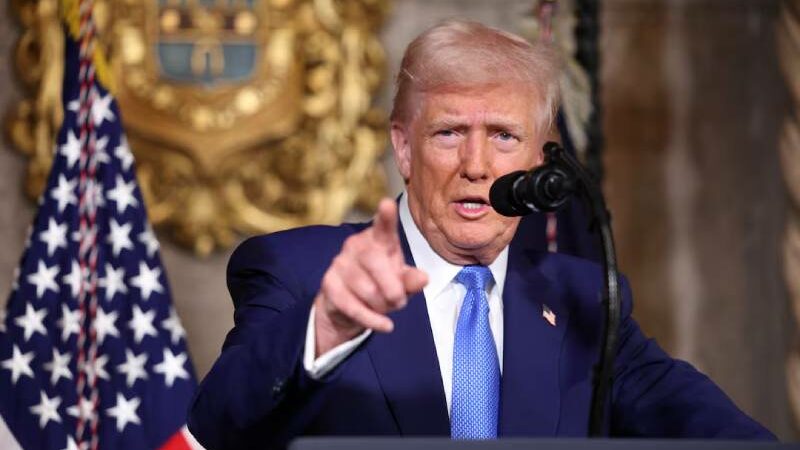Donald Trump announced a new set of proposed tariffs at a Rose Garden event on Wednesday. These tariffs are being compared to Great Depression-era policies and are being characterized as “short-sighted” and having “no basis in logic.” Trump proposed huge new taxes on products entering the US from overseas while holding a huge poster board that was flapping in the wind. duty rates varied from 10 percent to over 50 percent among the 60 countries named, with China having a duty of 34 percent, Vietnam 46 percent, the EU 20 percent, and Cambodia 49 percent, among others.
The United States stands as the largest importer globally, acquiring trillions of dollars in goods annually. A significant portion of these products is not manufactured domestically, and the steep taxes are set to affect supply chains across various sectors, including technology, apparel, food, and automobiles. In light of deteriorating relations between the US and China, several companies have sought to diversify their supply chains by relocating production to other nations. For instance, Apple began manufacturing billions of dollars’ worth of iPhones in India last fall to reduce its reliance on China. However, under Trump’s new policy, imports from India would face a hefty 26 percent tariff.
The President did not clarify the method used to determine the rates, but if these high taxes are put into effect, they will likely cause prices for retailers—and consequently, consumers—to soar. The Trump administration has consistently misrepresented who bears the cost of tariffs, asserting that the exporting country pays the price. This is a misunderstanding of how tariffs function, regardless of how often Trump insists otherwise.
According to the New York Times, a 10% “baseline” duty is included in the figures in the chart, thus the additional increase on Chinese products is 24% plus 10%.
Trump also signed an executive order after the event that closed the de minimis exemption, a little-known carve out that permits duty-free entry into the US for items under $800. In order to maintain low pricing, ultra-cheap shops such as Shein, Temu, and Amazon Haul take advantage of the law, which exempts customers from paying taxes that would otherwise be due on their purchases. Ending the exemption might undermine the business model that has captivated Americans looking deals on online businesses that rely on China.
The high import charges are said to be on top of the tariffs already imposed by the Trump administration. Vehicles and imports from important US trading partners like Canada and Mexico have also been subject to separate taxes by him.
- Melon Music Awards 2025: Full Nominees List Led by G-Dragon and Jennie - December 16, 2025
- FCS Final Four 2025: Semifinal Matchups, Start Times and Broadcast Details - December 16, 2025
- National Champions: Washington Huskies Win First-Ever 2025 NCAA DI Men’s Soccer Title - December 16, 2025




